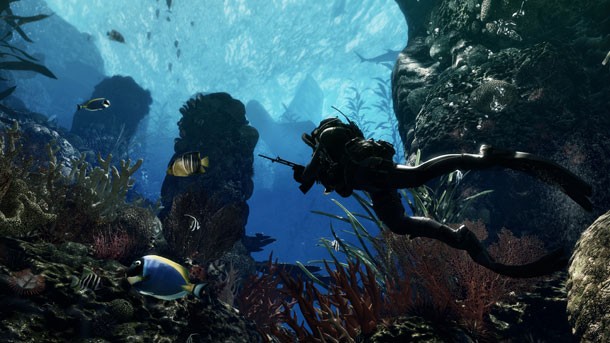Please support Game Informer. Print magazine subscriptions are less than $2 per issue
Opinion – Lack Of Innovation Isn't A Problem

"Innovative" has always been an overused buzzword in the video game industry, to the point where the term has lost all meaning. Lately however, gamers have become fond of using innovation – or the lack thereof – as a convenient excuse to condemn series and genres they simply don't like.
Scroll through the comments on a story discussing virtually any popular franchise or sequel, and inevitably someone will cite the absence of innovation as a reason for hating it. Usually, this argument is presented as being incontrovertible, a self-evident assertion of the game's lack of value. As far as pointless Internet arguments go, it's pretty effective and damning – unless you actually stop and think about it for more than five seconds.
Part of the problem is that the word "innovative" is so overused and misunderstood that it has no meaning. In the most basic sense, describing something as innovative simply means that it contains new ideas – something that is true of most games to at least some degree. However, for most people innovative means much more. We consider a game innovative when it does something clever, something we haven't seen before, something groundbreaking. By straying from the dictionary definition, "innovative" already has a nebulous and mystical quality to it – a perfect descriptor for people who want something new but don't know precisely what that new thing should be.
At the same time, "innovative" is a dreadfully overused term, one of many buzzwords publishers invoke to convince consumers that their title offers a revolutionary new experience that will forever change how they play games. In reality, most games only feature incremental improvements. That's not a bad thing; most great products come from years of refinement, and are not miraculously perfect in their first iteration. But no developer or publisher wants players to think of their game as more of the same plus a few minor improvements, and everyone wants to play a game that's Innovative with a capital "I."

Nowadays, gamers have contorted the indefinable qualities of innovation as a way to condemn and dismiss games that aren't suited to their tastes. Our recent coverage of Evolve made this strikingly clear to me. Turtle Rock is playing with a lot of new and genuinely unique ideas, from an asymmetrical player structure to hunting and trapping mechanics that we haven't seen in games before. The result is a game that plays differently than any game I've played before, which was one of the reasons I was excited to introduce our readers to it. Imagine my surprise when I found out that – according to some online comments – Evolve isn't innovative because you're still shooting guns.
In cases like this, people are obscuring their personal game preferences with allegations over a lack of innovation. It's not that the game isn't introducing new ideas – they're just not ideas the game's detractors are interested in because they don't appreciate or enjoy the core mechanics. Evolve lost these players at the word "shooter." But rather than condemn a game based solely on its genre, they dress up their complaints with a word that's too vague to refute; it's not "innovative." If someone does call B.S., they can always fall back on the classic philosophical argument that every idea is derived from something else.
The biggest victim of this kind of accusation is Call of Duty. Activision's FPS series makes for an easy target; the franchise is one of the industry's biggest commercial successes, it sees annual releases, and it's largely iterative, with each new game building on previous installments. Call of Duty provides so much low-hanging fruit that you can hardly blame trolls for showing up to shake the branch. You've probably seen the comments: "Call of Duty doesn't do anything new! It's the exact same game every year! It's not innovative!"
Only the series is different every year, and sometimes wildly so. Call of Duty: Ghosts has so many strange detours off the battlefield – from first-person dog sequences to shark attacks and spacewalks – that it's hardly recognizable as a military shooter anymore. The multiplayer offerings are equally eclectic, with a new co-operative mode that pits players against invading aliens and DLC that lets you play as Michael Myers. How are these ideas not new? What more could the developers possibly do to shake up the series?
There's nothing wrong with being uninterested in a game series, but we should be honest about our reasons for disliking them. New ideas are being explored in every genre – yes, even in first-person shooters – and iterative refinement is an equally important (albeit less sexy) aspect of the industry. Innovation isn't a problem, and the term is so abused and overused that we should strike it from our vocabulary.










